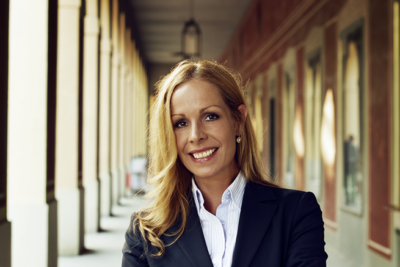Interview with Susanne Bregy and Sabine Appt on the topic of impact investing
Financial experts Susanne Bregy, Head of Impact Investing, PHINEO gAG and Sabine Appt, Expert Impact Investing, PHINEO gAG, are passionate about impact investing. Impact investing aims to solve social and ecological problems through entrepreneurial models. It aims to contribute to the transformation to sustainable economic activity and close the financing gap to the SDGs.
The interview was conducted by Michael Schmidt.
Dear Susanne and Sabine, after your roles in the Finance & Banking sectors, you both have discovered the topic of Impact Investing. What does Impact Investing mean to you, and why does it inspire you?
Susanne Bregy: When we talk about Impact Investing, we’re talking about “Real World Impact.” It’s about solving fundamental social and/or environmental problems using commercial business models, in other words, through entrepreneurship. Behind this is the fact that the major societal and ecological challenges of our time cannot be solved by governments and politics alone. The United Nations, with the Sustainable Development Goals (SDGs) framework, has called upon states, as well as the business sector and private asset owners, to contribute to achieving the SDGs through investments. This is where we come in, aiming to further develop the Impact Investing market in the DACH region through consulting services and tailored investment strategies. Impact investments demonstrably create positive outcomes for our society and environment while also achieving financial returns.
Sabine Appt: Our vision, that positive values can be pursued not only in our consumer behavior but also in investment choices, drives us. Impact Investing, as a spearhead of value-oriented investing, shows how companies can successfully bring products and services to the market that contribute to the necessary transformation of the economy.
Where does the German market stand today, also in an international comparison?
Appt: The German Impact Investing market has evolved over the years from a niche to larger volumes, an internationally recognized, standardized definition of Impact Investing, and associated standards in measuring impact. A large number of impressive entrepreneurial success stories show how enormous the potential is. Investment is happening particularly in the ecological sector, but also in areas like health and real estate, thereby creating social and environmental impact. However, many of these investments, such as venture capital or private equity, have been accessible to only a limited portion of investors.
Bregy: In America and UK, the markets are more advanced, with invested volumes surpassing those in Germany. Impact Investments have been promoted in both countries for years, and in the UK, sometimes even supported by government funding. Especially in the USA, the asset classes in which we implement Impact Investing (Private Equity, Venture Capital, Real Assets) are generally more widespread. Additionally, there is a higher risk appetite in America compared to traditional German investors. Declaring bankruptcy is not a problem in the USA, but unfortunately, it is still stigmatized in Germany. Also, pension funds are less regulated in America and can invest more freely. We observe that profit-oriented companies offer successful solutions to societal challenges, especially in less socially oriented systems, and investors are eager to include these solutions in their portfolios.
“In a simplified sense, ESG aims to earn money without causing harm, while Impact Investing aims to earn money and actively solve problems.”

Susanne Bregy, Head of Impact Investing, PHINEO gAG
How is impact measured and managed concretely, distinguishing it from traditional ESG criteria?
Bregy: Impact, the positive social and/or environmental effect, is continuously measured and managed in Impact Investments similar to financial metrics, to achieve the greatest possible effect and reflect it in the company’s strategy and reporting. Central to measuring impact is defining the target audience where the positive change should occur, as well as the “Theory of Change,” which outlines how the change can be realized. Impact development is typically measured and managed for internal control and investor purposes using Key Performance Indicators (KPIs). ESG criteria are widespread in liquid investments and focus on compliance with environmental and social standards, as well as risk assessment. In a simplified sense, ESG aims to earn money without causing harm, while Impact Investing aims to earn money and actively solve problems.

Sabine Appt, Expert Impact Investing, PHINEO gAG
“Impact companies particularly demonstrate that the shift towards regenerative business within the planet’s limits is possible, and win-win scenarios for solving societal and environmental challenges can be realized.”
What role can Impact Investing play in the transition towards sustainable business and closing the SDG financing gap?
Appt: Impact companies particularly demonstrate that the shift towards regenerative business within the planet’s limits is possible, and win-win scenarios for solving societal and environmental challenges can be realized.
Bregy: We are confident that with Impact as well as genuine ESG investments, we can make a significant contribution to closing the global financing gap. As a team, we share the enthusiasm for the pioneering role and inspiration that Impact Investing offers to the financial markets and the real economy.
Event note Cluster Spotlight:
Impact Investing or just ESG after all?
“Impact” has become a buzzword in sustainable investments. The range of understanding among market players in their use of the term is very wide. Regulatory law does not provide conclusive clarity, and academia is not in agreement either. Ultimately, however, it is crucial that the fundamental idea of “impact” be taken seriously by financial actors and be incorporated into as many investment and financing decisions as possible. After all, this is the only way that the financial world can make the contribution demanded by policymakers, regulators and the general public to the socio-ecological structural change in the economy that is now being invoked in many places – the great transformation. So what is behind the idea of “impact”? We will be discussing this with experts from academia, business and investment practice at our Cluster Spotlight event.
